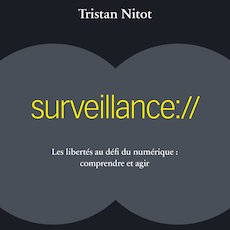There is a key concept about what we do at Mozilla, which is kind of familiar to most of us. It's the notion of Generativity. I know, it's not even a word! However, it looks like this concept is not so well understood by people who are not spending most of their time building the Web or a browser or similar things. So I figured I should spend some time explaining what it is about. Then I'll blog on why Generativity is central to the Mozilla project and the Mozilla Manifesto.
Let's start by asking Wikipedia about Generativity. Here is the definition (I have removed the part about epistemology to avoid unnecessary headaches and added emphasis where needed):
Generativity describes in broad terms the ability of a self-contained system to provide an independent ability to create, generate or produce content without any input from the originators of the system. (...) Technological generativity generally describes the quality of the Internet and modern computers that allows people unrelated to the creation and operation of either to produce content in the form of applications and in the case of the Internet, blogs. Jonathan Zittrain has expressed concern that many recent technologies such as DVR and GPS have moved away from the generative, two-way aspects of the personal computer and the Internet.
I have learned about generativity in reading a (great) book by Jonathan Zittrain, where the author gives the following definition:
Generativity[1] is a system's capacity to produce unanticipated change through unfiltered contributions from broad and varied audiences. Terms like "Openness" and "free" and "commons" evoke elements of it, but they do not fully capture its meaning, and they sometimes obscure it.[2]
The author then describes the five principal factors that make something generative:
- Leverage: how extensively a system or a technology leverages a set of possible tasks
- Adaptability: how well it can be adapted to a range of tasks
- Ease of mastery: how easily new contributors can master it
- Accessibility: how accessible it is to those ready and able to build on it
- Transferability: how transferable any changes are to others – including (and perhaps especially) non-experts.
I see the combination of PCs and the Internet as a wonderfully generative tool. A PC connected to the Internet, is amazingly leverage-able, adaptable, quite easy to master, affordable and the innovations produced can be easily transfered to other people. One could say that the connected PC is the ultimate generative technology: it enables people to invent new stuff, to do things that no-one had imagined before. Remember 20 years ago? The Internet was still used by scientists and the Web was still to be invented. Now let's think about things that were not possible at the time (I am sure I forgot tons of examples, of course):
- Publishing your own magazine. It's now called a blog. There are hundreds of millions of them today.
- Instant access for free to an amazing encyclopedia you can update with your own knowledge? It's now called Wikipedia. The English version is approaching 3 million articles. It exists in 265 different languages for a grand total of 13 million articles...
- Accessing maps of the world instantly, along with a satellite view? It's called Google Maps.
- Instantly accessing a fantastic wealth of information? It's called a search engine.
- Reuniting with high-school friends? Use social networks.
- Sharing pictures with friends, family and the world?? Flickr.com and cohorts of similar sites. Videos? Youtube and Dailymotion. Short messages? Twitter and Identi.ca.
- Work together as a community with people from all over the world to produce software to access all of this? It's called Open-Source / Free Software. (Or Mozilla
 ). Distributing these software products to ordinary people that enjoy them? Firefox has now 270 million active users in the world.
). Distributing these software products to ordinary people that enjoy them? Firefox has now 270 million active users in the world.
I hope that I have succeeded in explaining what Generativity is. In future posts, I'll discuss its pros and cons, along with its relationship with Mozilla. Stay tuned! In the meantime, Zittrain's book is available for download, and you can read its review by Cory Doctorow.
Notes
[1] or "innovative character", as mentioned on the book's home page.
[2] I have been using "hackability" for a while myself. I'm not sure it's better than "generativity", though.






3 réactions
1 De Tristan - 20/05/2009, 09:01
One (private) tweet from @MitchellBaker is worth mentioning here:
> i'm obsessed with the word "opportunity." As in, "Mozilla is building opportunity, innovation and participation into the Internet"
(This is – of course – an excerpt from the Mozilla Manifesto).
I have a hard time putting actual meaning behind the word opportunity. It sounds really vague to me. So I looked it up in the New Oxford American Dictionary:
Opportunity:
It's obviously the first meaning that Mitchell is referring to. So one could read the Manifesto as "Mozilla is building into the Internet a set of circumstances that makes it possible to do something, to innovate and participate".
This is what I like about the notion of Generativity. It does imply innovation and participation. But it's also narrower and more precise than "opportunity".
2 De Richard Zeidel - 20/05/2009, 17:21
Great post. This concept closely correlates with the idea of unintended consequences. Twitter and search as an example. I also remember someone telling me that Canada was founded on the idea of beaver pelts - how things have changed. Core concepts to entrepreneurs and anyone dealing in a startup environment.
3 De Jeremie - 20/05/2009, 17:21
A very interesting article. So interesting that you could consider translating it into French. What do you think ?